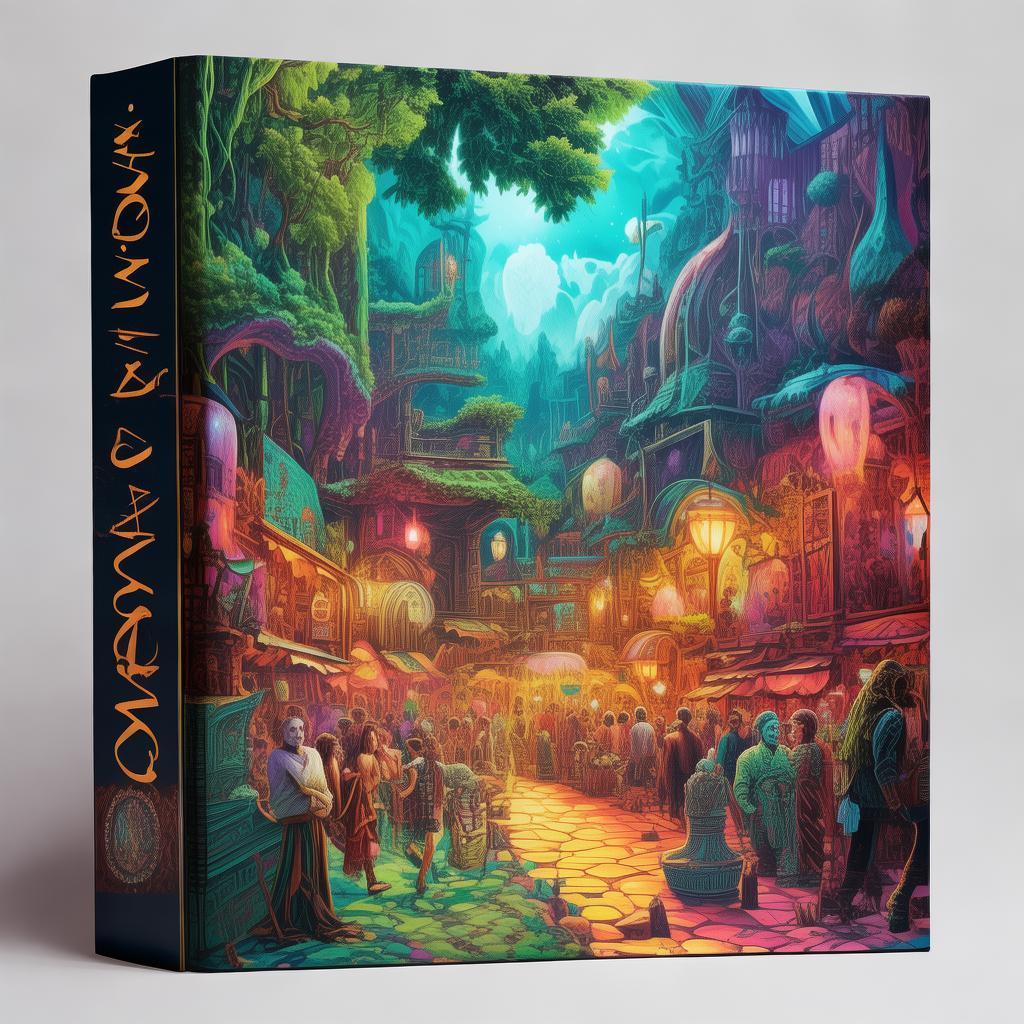The Unraveling of Echoes
The sun dipped below the horizon, casting long shadows that danced across the cobblestone streets of the quaint village of Narrator's End. The air was thick with the scent of pine and the distant hum of the sea. Here, in this place where the past and present intertwined, there was a peculiar phenomenon: every story told by its inhabitants was destined to end, yet one tale had evaded the inevitable conclusion.
Lila stood at the edge of the village square, her eyes scanning the crowd as if searching for something they all took for granted. She was a young woman with a face that bore the weight of countless unspoken words, her hair a cascade of midnight black that mirrored the shadows around her.
"The Pilcrow's Paradox," she whispered to herself, her voice barely above a whisper. It was a name she had given to the enigma that had consumed her since childhood. The Pilcrow, a symbol of paragraph breaks, was said to be the guardian of stories, ensuring that every narrative came to a close. But Lila's story was different; it seemed to defy the very laws of storytelling.
She had always been a writer, her fingers dancing across the keys of her laptop with a fervor that belied her youth. Her stories were vivid, her characters lived and breathed, but they always ended. With a twist, an emotional resolution, or a cliffhanger that left readers yearning for more. Yet, her own story remained a conundrum, a loop that seemed to repeat itself without ever reaching a conclusion.
One evening, as the moon began to rise, Lila found herself drawn to the old library at the heart of the village. The library was a labyrinth of books, each one a portal to another world. It was here that she first encountered the Paradox, a book bound in leather and ink that seemed to hum with an ancient power.
Inside, she found a single paragraph, its words etched into the page as if by the hands of time itself:
"In the village of Narrator's End, there lived a woman named Lila. She was a writer, a teller of tales, but her story was one that defied conclusion. She sought the truth, the end, but it eluded her grasp. And so, she wrote, and she wrote, and she wrote..."
The paragraph looped endlessly, each iteration slightly different, each one a fragment of Lila's life, each one a step closer to the truth. She knew then that she had to unravel the Paradox, to find the end of her story, to understand the nature of storytelling itself.
Her quest led her to the edges of the village, where the path was overgrown with wildflowers and the trees whispered secrets of the past. She met characters from her own stories, each one a reflection of her own struggles and desires. They spoke to her of love, loss, and the enduring power of hope.

As she delved deeper into the Paradox, Lila discovered that her story was not just about her. It was about the collective consciousness of the village, the collective narrative that bound them all together. She realized that the Paradox was not a curse, but a gift, a reminder that stories are not just about endings, but about the journey.
In a climactic moment, Lila faced the ultimate challenge: to write her own conclusion, to bring her story to a close. She sat down at her laptop, her fingers trembling with anticipation. She wrote, and she wrote, and she wrote, until the words on the screen formed a sentence that seemed to resonate with the very essence of her being:
"In the village of Narrator's End, there lived a woman named Lila. She was a writer, a teller of tales, and her story was one that transcended conclusion. She lived, she loved, she learned, and she wrote, and in the end, she knew that the true power of storytelling lay not in the ending, but in the journey."
With that, the Paradox was broken, and Lila's story was no longer a loop. It was a cycle, a continuous journey that would never end. She looked up at the night sky, the stars twinkling like distant eyes, and she smiled. For in the end, she had found the truth, not in the conclusion, but in the endless possibilities of storytelling itself.
✨ Original Statement ✨
All articles published on this website (including but not limited to text, images, videos, and other content) are original or authorized for reposting and are protected by relevant laws. Without the explicit written permission of this website, no individual or organization may copy, modify, repost, or use the content for commercial purposes.
If you need to quote or cooperate, please contact this site for authorization. We reserve the right to pursue legal responsibility for any unauthorized use.
Hereby declared.









